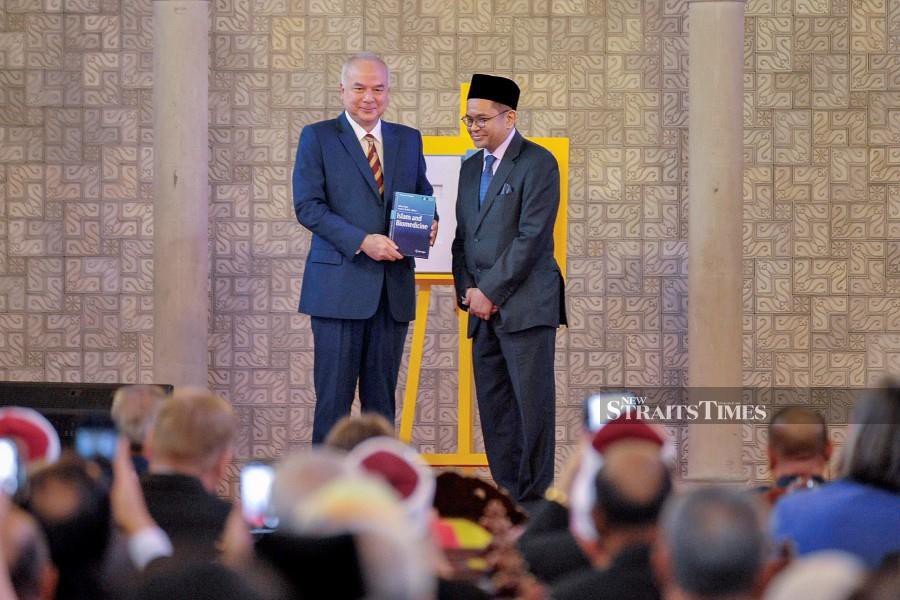KUALA LUMPUR: More ethical cooperation and research based on Islamic concepts and biomedicine need to be conducted to prepare the world for global health challenges in the future.
Sultan of Perak Sultan Nazrin Muizzuddin Shah said although the Covid-19 pandemic is no longer a global health emergency, its medical, emotional and societal repercussions continue to be felt the world over.
However, he said the need to react rapidly in the face of crisis left little space to consider the deeper psychological and ethical implications of such an event.
"While we might now be better prepared in logistical terms, for future health emergencies, I do not believe our global community is yet fully capable of addressing fundamental ethical questions like these.
"And it is in areas such as this that the work and thinking presented in Islam and biomedicine can make such an important contribution.
"Here, we find essays on the tension between medical determinism and Islam's conception of the human as a free moral agent.
"These essays, in other words, model for us a way of thinking through difficult moral questions, to which medicine, faith and compassion may all give differing answers," he said.
The Perak ruler was speaking at the launch of a book titled Islam and Biomedicine at the International Institute of Islamic Thought and Civilisation, of International Islamic University of Malaysia (ISTAC-IIUM) here today.
The book is published by Springer and edited by Oxford Centre for Islamic Studies fellow Datuk Dr Afifi al-Akiti.
Present were IIUM president Tan Sri Samsudin Osman, Afifi as well as foreign ambassadors and academic experts.
In his speech, Sultan Nazrin also said that artificial intelligence (AI) is dominating the world, including the medical field where it can help match patients with better tailored and effective treatments; cut down the frequency of radiotherapy treatment; and help speed up the discovery of new antibiotics for tackling superbugs.
"There is even talk of an AI-powered medical revolution, with rapid, life-saving advances in diagnosis and treatment.
"However, AI machines are not moral beings, able to comprehend ethical nuances and apply compassion to complex situations and decision-making, only humans can do that.
"It cannot reflect. It cannot, as our brilliant human medics and scientists do, look at the data and then make holistic judgements about the best course of action, taking into account a patient's physical, mental and emotional well-being.
"Neither can it follow in the footsteps of our wise philosophers, our theologians, our ulama, whose work must often venture far beyond the realms of data," he added.
Sultan Nazrin also attended a special "Islam and Biomedicine" forum organised by ISTAC. This was followed by a visit to the Syed Muhammad Naquib Al-Attas library.
The Islam and Biomedicine book is a collaboration between Afifi and physician Dr A.I. Padela from the University of Chicago.
The book is the result of a major scholarly project supported by the Templeton Religion Trust, an organisation renowned for its support of the world's greatest minds founded by Sir John Templeton in 1984.


